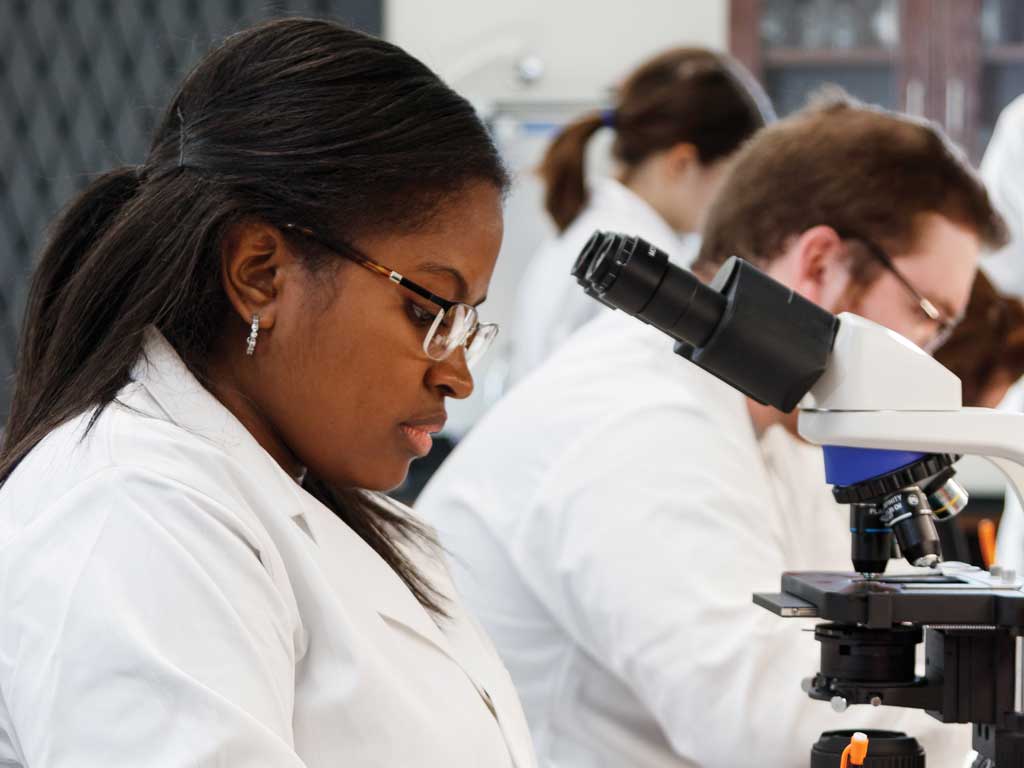Chantel Shores, BS’16, was thrilled to learn IU South Bend was launching a clinical lab sciences degree program (CLS). “I knew I could trust the education I would get at IU South Bend,” she explained. “And I really wanted to learn more about clinical lab diagnostics.”
After earning her undergraduate degree in biology at IU South Bend, she started working at Beacon Elkhart General as a clinical laboratory assistant. “I love my job,” she said. “I wanted a degree in clinical lab sciences so I can advance in the field.”
A nationwide shortage of certified clinical lab technicians has led to medical labs hiring biology and chemistry graduates like Shores. The lab trained her to operate the diagnostic machines used to run the tests.“I know which machine to use and the buttons to push,” explained Shores, “but I want to understand how the instruments work and why we chose that instrument for a particular test.”
She loves working in the lab because it piques her scientific curiosity. “I like to begin a test and not know the outcome and see the progress,” she commented. “I love learning and now that I have a stable career, I’m excited to pursue a second undergraduate degree that will advance my career.”
Ian Clift, PhD, program director in the Division of Health Sciences at the Vera Z. Dwyer College of Heath Sciences and the director of the Clinical Laboratory Science Program, said, “Our goal is to address this shortage in the field by being a source for medical laboratory professionals who excel in the 21st-century health care environment.”
The program answers a critical need in northern Indiana.“We offer the only public CLS program in the northern part of the state,”Clift explained. “This program is filling a gap and need in the region.”
Graduates of the program will be prepared to take the national certification in Medical Laboratory Science administered by the American Society of Clinical Pathology Board of Certification. “The certification is the gold standard in the field,” said Clift.
After completing prerequisite requirements, similar to those in the biological sciences, students apply in the fall of their third year for admission into the cohort that begins in the spring semester. Over a period of three semesters, students take courses that include a specific focus on hospital-based diagnostic testing and practice, including introductions to clinical chemistry, hematology, microbiology, immunodiagnostics, blood banking, and urinalysis. Students are also required to complete aseries ofcompetency requirements at regional laboratory organizations.
In her job, Shores is already seeing the benefits of returning to IU South Bend to get her CLS degree. “Now I know how the instrument works,”she explained.“I can actually talk about it, and I know what questions to ask the nurses and physicians when I get results that are not the norm.”
She’s looking forward to having the degree and the credentials to be a clinical laboratory scientist and to work in more specialized areas of the lab that perform more complex tests on molecular structures and tissues. “It’s hard, but I love learning,”said Shores, who works the third shift. “This degree was made for me and where I want to go with my career.”


